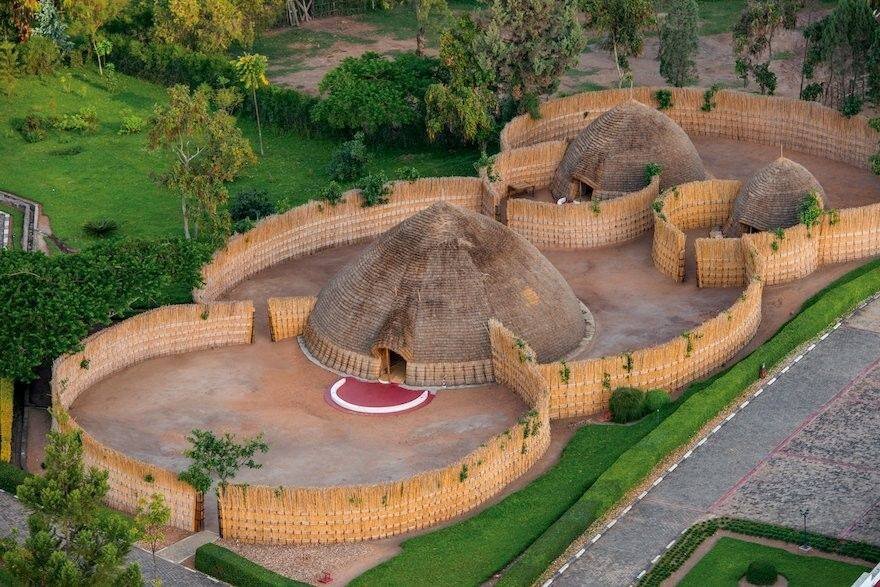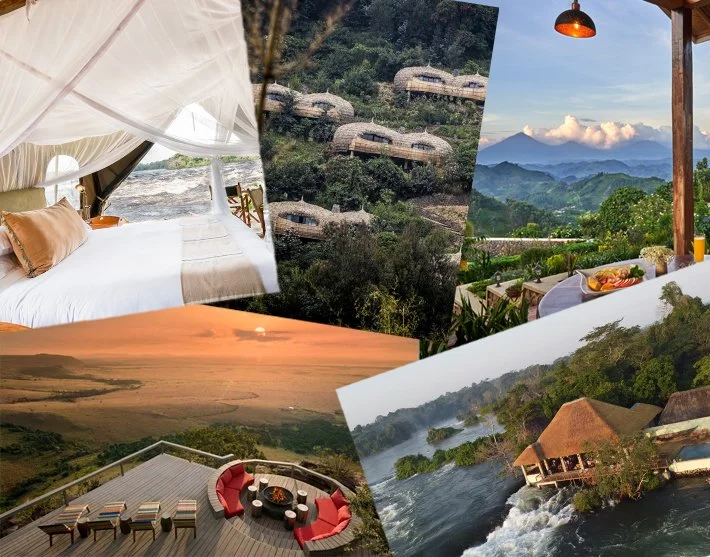
The Old Kingdom of Rwanda
Overview
To give an insight into the types of luxury travel experiences we create, please view the sample itinerary below. It can either be treated as a standalone program, incorporated into a longer itinerary, or modified to match your particular interests and budget. Alternatively, you may wish for us to start with a blank canvas, to handcraft a personalised itinerary based on what you want and nothing more. Prices will fluctuate based on the time of year, length of stay, accommodation choices, number of participants and inclusions.
We pride ourselves in our ability to plan and execute every trip to perfection.
Itinerary
-
Upon arrival at Kigali International Airport, meet your Travulous guide and transfer to your accommodation in Kigali.
Spend the rest of the day at leisure enjoying your accommodation's facilities or head out and explore Kigali, either on your own or on a guided city tour.
Some sites to consider visiting are the Kigali Genocide Memorial, Inema Arts Centre, 1000 Hills Distillery, Nyamirambo Women’s Center, Caplaki Craft Village, and Umusambi Village, to name a few.
In the evening, there are many charming restaurants in Kigali to choose from for dinner, many featuring panoramic views over the city.
Meals: All meals at own arrangement.
Overnight: Speak to us or browse the accommodation section below for inspiration. Your custom itinerary will contain full descriptions of your chosen properties.
Activities: Let's plan your trip! Contact us to learn about available activities.
-
After breakfast, meet your Travulous guide and transfer to Nyanza. Known as the cultural centre of the country and the capital of the ancient Kingdom of Rwanda in pre-colonial days, Nyanza is the location of King Mutara III Rudahigwa’s Palace and mausoleum.
After enjoying lunch with a cultural scholar specialising in the 15th century, visit the replica of the King’s traditional palace, which offers an insight into royal life, the monarchial system and its abolition in the early 1960’s. Included is a visit to the King’s modern palace, which showcases Rwandan history dating back to the 15th century.
Before transferring to the accommodation of your choice, visit the long-horned Ankole cattle, known as Inyambo which descended from the King’s original herd. These cattle are of great cultural significance and whose keepers groom and sing to them.
Meals: Breakfast, lunch and dinner included.
Overnight: Speak to us or browse the accommodation section below for inspiration. Your custom itinerary will contain full descriptions of your chosen properties.
Activities: Let's plan your trip! Contact us to learn about available activities.
-
After breakfast, visit the Ethnographic Museum (formerly known as the National Museum of Rwanda) which houses a selection of ethnographic and archeological collections from East Africa with more than 10,000 artefacts and photographs. The museum provides visitors with an insight into pre-colonial lifestyles through to the development of Rwanda as a modern African nation.
After lunch, depart for Kigali airport and your homebound flight.
Alternatively, consider extending this trip by adding one of our Extension Ideas (see below) to this program.
Meals: Breakfast included, lunch and dinner at own arrangement.
General Info
Highlights
VISIT NYANZA
Visit Nyanza, showcasing Rwanda’s centre of learning, culture, history and traditions
RWANDAN HISTORY
Visit the King’s modern palace, which documents Rwandan history dating back to the 15th century
THE KING’S PALACE
Visit the King’s traditional palace, to learn about royal life, the monarchial system and its abolition
SPECIALIST TOUR LEADER
Enjoy the company of Rose-Marie, Travulous’ specialist historian, language expert and cultural scholar
Accommodations
When it comes to choosing accommodations in East Africa, we can suggest a wide range of properties. View a sample of some of our favourite hotels, lodges and camps below:
If you have an alternative property in mind, contact us as we contract with a large variety of accommodation providers.
Map
Extension Ideas
SAFARI HIGHLIGHTS
Visit world famous safari highlights including the Serengeti, Ngorongoro Crater and the Gorillas
BEHIND THE SCENES
Gain unique insights into Wildlife Conservation, Educational Experiences and History & Traditions
BEACH DESTINATIONS
Round-off your safari in East Africa with a great choice of world-class Indian Ocean beach destinations
WILDLIFE SANCTUARIES
Visit a wildlife sanctuary and learn about the incredible work they do to safeguard Africa’s wildlife
Your Money
Travulous, a trading name of Travaleur Limited, is a member of Protected Trust Services (PTS). Our PTS membership number is:
5472
All business-to-consumer (B2C) and business-to-business (B2B) clients of Travulous benefit from its PTS trust account and insurance model.
Regardless of your location, book with confidence knowing all monies are fully protected and safely held in a separate trust account, managed by independent trustees, with the funds only used to pay for each booking.
Travel Notes
-
Rwanda has a year-round tropical highland climate. Temperatures remain relatively consistent throughout the year, though these can vary significantly by location and altitude. Rain is commonplace in Rwanda. The driest months are typically June to mid-September and December to February. The wettest months tend to be from March to May and October to November.
Rainfall patterns can be unpredictable and localised showers can occur at any time, especially in the high-altitude areas like Volcanoes and Nyungwe National Parks.
-
All foreign nationals require a visa for entry to Rwanda. Please check with your local Rwandan Embassy or our travel team for further information. Tourist visas can be obtained, on arrival, for all travellers at all ports of entry. Visitors from the African Union, the Commonwealth of Nations and Organisation Internationale de la Francophonie are waived visa fees for visits up to 30 days. For travellers of other nationalities, a visa fee is payable. The Rwandan government has introduced an online ‘e-visa’ application system for obtaining tourist visas in advance of travel. Travellers who choose to arrange their visa prior to arrival should carry a printed copy of their visa to present to immigration officials.
-
The official languages of Rwanda are Kinyarwanda, English, French and Swahili. Nearly all Rwandans speak Kinyarwanda. English and French are spoken in most tourist areas, with varying degrees of fluency.
-
The local currency is the Rwandan franc, which divides into 100 centimes. US dollars are widely accepted in hotels and at tourist attractions; local currency is required for dining in restaurants, tipping and small purchases. Some vendors will only accept USD dated 2013, or newer. Few places accept credit cards outside of the major hotels. The national parks are cash-free and only card payments are accepted. Access to cash machines is available at the airport and in major towns (Kigali, Musanze and Rubavu), and exchanging currency can be done in banks and foreign exchange bureaus.
-
Kigali International Airport (KGL) is the primary airport serving Rwanda.
Request A Quote































